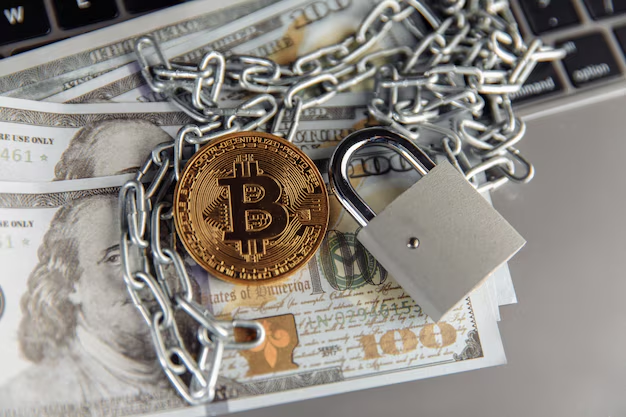How to Identify Bitcoin Scammers and Protect Your Investments
As Bitcoin continues its ascent as a mainstream financial instrument, it attracts not only investors but also a fair share of scammers looking to exploit the buzz surrounding this digital asset. While cryptocurrency offers exciting opportunities, it's essential to remain vigilant and informed to safeguard your investments against fraudulent schemes. This article delves into the various signs of Bitcoin scams and provides practical tips to recognize and avoid them.
🕵️♂️ Recognizing Common Bitcoin Scams
Bitcoin scammers deploy a variety of tactics to lure unsuspecting victims. Here are some of the most common schemes:
1. Phishing Scams
Phishing attempts trick individuals into providing personal information such as passwords and wallet keys. Scammers often disguise themselves as legitimate entities via emails or fake websites that closely mimic official cryptocurrency exchanges or service providers.
🔍 Red Flags:
- Emails with urgent requests or threats.
- URLs that slightly differ from legitimate sites.
- Poor grammar and spelling errors.
2. Ponzi and Pyramid Schemes
These schemes promise high returns with little risk by paying earlier investors with the capital of new investors, rather than from profit earned. Eventually, such models collapse when they can't recruit new participants.
🔍 Red Flags:
- Guaranteed profits with no risk.
- Requirements to recruit others for rewards.
- Lack of a clear business model for generating returns.
3. Fake Exchanges and Wallets
Fraudsters create counterfeit exchanges or wallets to harvest personal data and funds. They often offer enticing rates to attract victims.
🔍 Red Flags:
- Unusually low fees or high returns.
- No verifiable online presence or reviews.
- Lack of security features like two-factor authentication.
🛡️ Protecting Yourself Against Scams
To avoid falling victim to Bitcoin scams, adopt these defensive strategies:
1. Verify Authenticity
Always double-check the legitimacy of any platform or service you plan to use. Conduct thorough research online, looking for reviews and company information.
👥 Community Insight: Follow reputable cryptocurrency forums and communities to stay updated on known scams and reliability of platforms.
2. Secure Your Credentials
Your personal and wallet information is the gateway to your assets. Use complex passwords and enable two-factor authentication whenever possible. Avoid sharing private keys with anyone.
🔐 Security Tip: Use password managers to create and store robust, unique passwords securely.
3. Stay Educated
Cryptocurrencies and associated technologies evolve rapidly. Stay informed about common scam tactics and industry developments.
📰 Resource Suggestion: Subscribe to cryptocurrency news outlets and attend related webinars or panels.
4. Question Unrealistic Offers
If something sounds too good to be true, it often is. Be skeptical of any investment opportunity offering exorbitant returns with no credible explanation.
💡 Reminder: Legitimate investments involve risk, and no one can guarantee excessive profits.
🚀 Navigating the Bitcoin Landscape Safely
While scams can daunt new investors and seasoned crypto enthusiasts, remaining cautious and informed can help you navigate Bitcoin investment safely. Here’s a strategic summary to keep in mind:
- Verify Emails: Always verify URLs and sender addresses.
- Research: Look for credible reviews and community feedback.
- Use Secure Wallets: Stick to known and trusted wallet services.
- Educate Yourself: Regularly update your knowledge base.
- Report Scams: If targeted, report the scam to the appropriate authorities.
Key Takeaway Table 🗒️💡
| Scam Type | Red Flag | Protection Tip |
|---|---|---|
| Phishing | Urgent requests, URL discrepancies | Verify URLs and email sources |
| Ponzi Schemes | Guaranteed returns, recruitment focus | Research the business model and community feedback |
| Fake Exchanges | Too good to be true offers | Use reputable exchanges with two-factor authentication |
| General Safety | Unsolicited offers, unrealistic claims | Trust your instincts and research before investing |
Embracing a defensive mindset will help you protect your investments in the decentralized world of cryptocurrency. Be vigilant, stay informed, and always question what's presented to you. By doing so, you can enjoy the benefits of Bitcoin without being sidetracked by scams.

